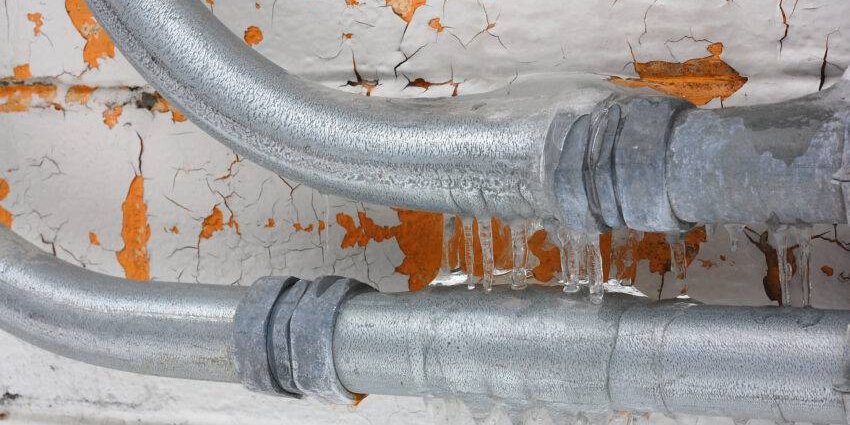Holidays are a staple of the winter season, which comes with the beauty of snowy landscapes that we can witness from the warmth and comfort of our homes.
However, this beautiful and cozy season brings some problems for us as well. As the temperature drops, all homeowners have a united fear; frozen pipes. this isn’t just a mild inconvenience; this can lead to significant damage to your pipes which is costly to repair. Don’t worry though, you’ve come to the right place, as we will teach you how to take the preventative measures to avoid your pipes freezing this winter.
Understanding the damage and risk
Before we look into the preventative measures to keep pipes from freezing. Let’s understand why it happens in the first place. what happens is, the water inside the pipes reaches a freezing point, which causes it to turn into ice. Ice has a larger volume than water, which means it takes more space than in liquid form, in other words, it expands. This expansion exerts pressure on the walls of the pipes, it may be fine if it happens once, but when it is a repeated cycle of freezing and thawing, the pressure will cause a lot of damage that will start with just minor leaks, then it might cause them to burst.
Tips for prevention
there are a few simple tips and tricks that you can use and employ in your daily lives as cold weather precautions to avoid pipe damage;
Maintaining a consistent water temperature:
One of the main reasons for pipes to freeze is due to the water temperature being inconsistent. You should make sure that your home heating system is working, so your pipes don’t freeze. Even if you’re planning on leaving your home for a while, it’s wise to keep a minimal temperature maintained.
Insulation of the exposed pipes:
Pipes that are exposed to the harsh winter weather or are in areas that don’t receive heating such as your basements, attics, or crawl spaces, are particularly susceptible. Insulation of these pipes with foam sleeves or wrapping can provide an extra layer of protection.
Seal Leaks:
If your home walls have any gaps or cracks that can lead to cold air seeping in, you need to seal these areas immediately to prevent freezing air from reaching your pipes.
Allow your faucets to drip:
On nights that have extremely low temperatures, it’s smart to let your faucet drip. This way the pressure inside the pipes won’t build up. you can keep a bucket under the faucet so you don’t waste any water though.
Open Cabinet Doors:
If you have your pipes under cabinets like the kitchen faucet or the bathroom sink, you need to open the cabinet doors occasionally to let the warm air circulate the pipes.
Disconnect outdoor hoses:
Before extreme winters hit, and snow starts to fall, you need to disconnect as well as drain all the hose that are outdoors. Because if your hose is filled with water, it can freeze as well and cause pressure to build up in your pipes too, increasing the risk of frozen pipes or damaging them.
Consider Advanced solutions:
This hack is for those who live in extremely cold climates, install a temperature-controlled system that would maintain a steady temperature in your pipes on their own, or even a pipe heating cable as a permanent solution.
Conclusion:
Frozen pipes are not just a minor inconvenience for the winters, it’s a huge problem as it can damage your home and your pipes and would require extensive repairs that are costly too. So, by following these tips you can ensure regular maintenance to safeguard your home and avoid the extra hassle of dealing with your pipes freezing over the winter. Moreover, investing time and resources in preventative measures will not only alleviate the immediate burden but also give a sense of security and peace of mind. Remember, “An ounce of prevention is worth a pound of cure.”











